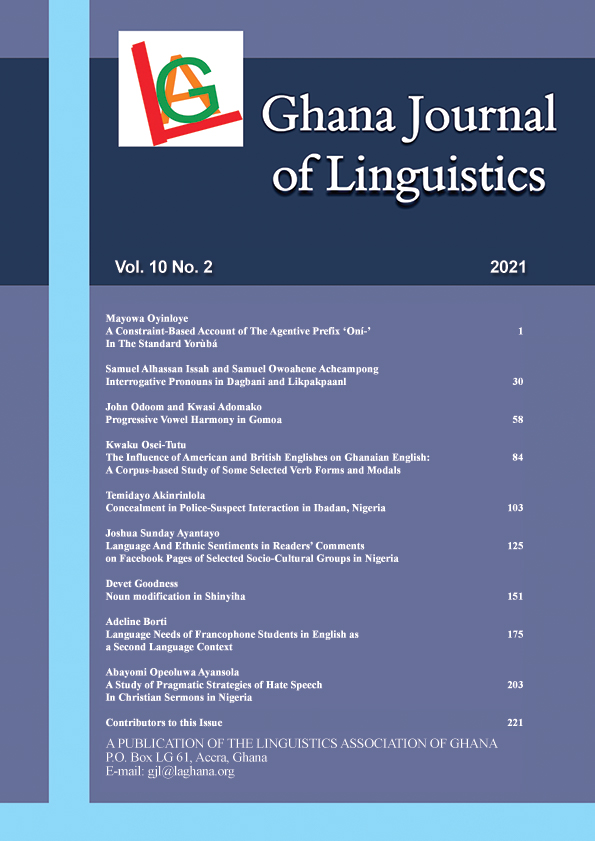Main Article Content
Interrogative Pronouns in Dagbani and Likpakpaanl
Abstract
This paper provides an analysis of the properties of interrogative pronouns of Mabia languages drawing data from Dagbani and Likpakpaanl. We focus on the inventory, internal structure, and key grammatical characterisation of the interrogative pronouns. We contend that interrogative pronouns are salient syntactic elements in the content question systems of these languages. In addition, we demonstrate that number marking, distinction between human/non-human and lexical ambiguity are salient grammatical properties of these interrogative pronouns. We further show that the inflection for number employs both suppletive and nonsuppletive patterns. We also contend that the interrogative pronouns that specify for the semantic domains of [+human], [-human] and [+thing] are sensitive to number, since they alternate for plurality (ŋuni ~banima (who.sg ~ who-pl), bo~bonima (what.sg ~what-pl), dini~dinnima (what.sg.thing ~ what.thing-pl) for Dagbani and (ŋma ~bilabi (who.sg ~ who-pl), nilan ~ bilabi (what.sg ~what-pl), ba ~ ba (what.sg.thing ~ what.thing-pl) for Likpakpaanl. Because the root may differ or be the same from that of the plural as evident in both languages, we propose that number marking in these interrogative words exhibit both suppletive and nonsuppletive patterns. The data are based on native introspection of the authors who are native speakers of these languages. This paper is important because of its empirical and theoretical contribution to the study of the Mabia languages.






